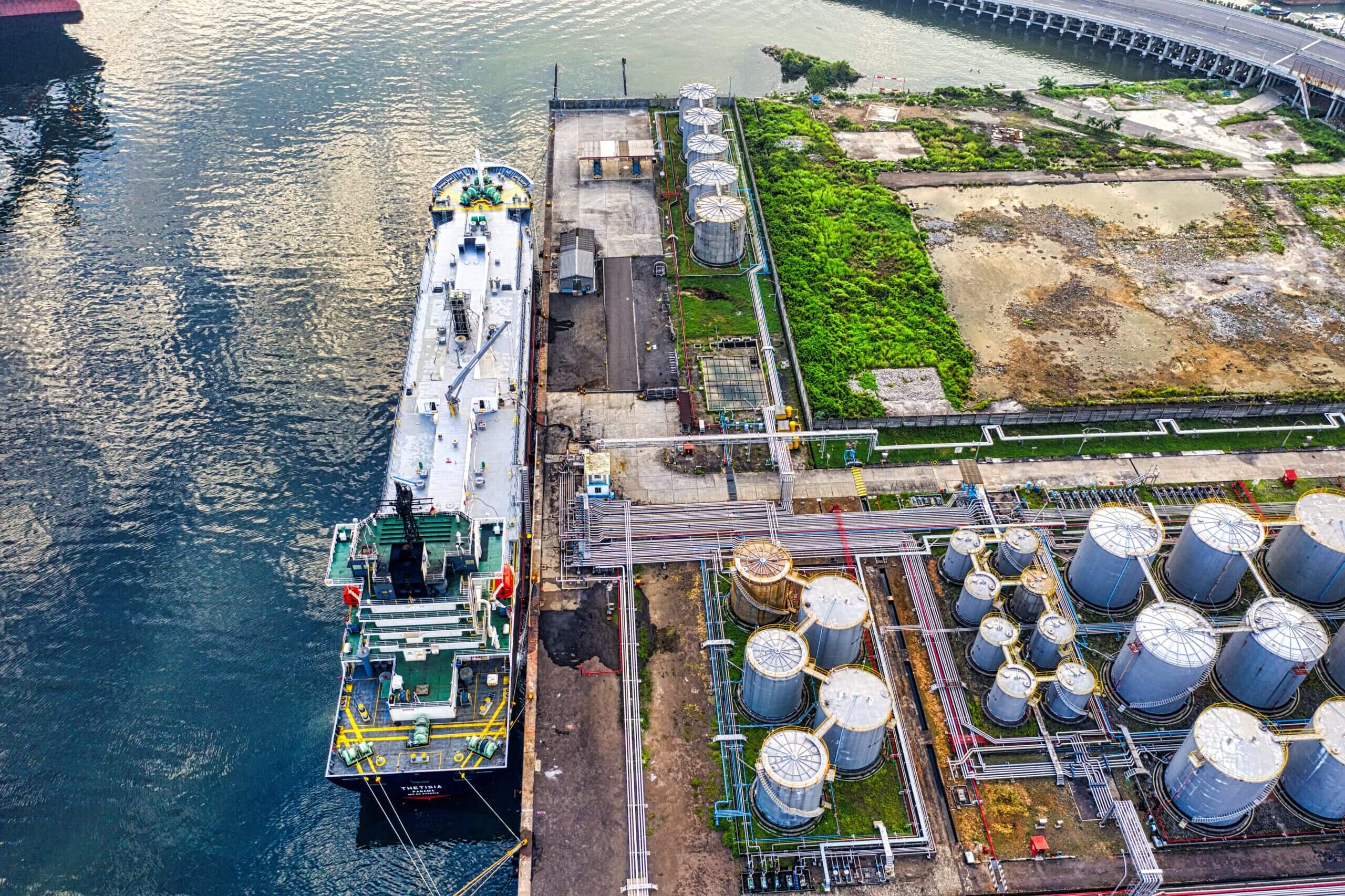On Friday, the US and EU announced a new plan to increase exports of liquefied natural gas (LNG) to Europe by 15 billion cubic meters in 2022 – and to triple those exports in subsequent years. The goal: To rid Europe, a critical US ally, of dependence on Russian energy, and by extension vulnerability to Russian coercion.
This move is huge, as a first step. It suggests that Washington has finally recognized two things. First, the imperative of supporting (or, in this case, fueling) its partners with actual resources. Second, that today’s international competition is one for and over supply chains — and that the US must compete.
But now it’s time for the US to get serious about the competition. The LNG agreement, as it currently stands, means nothing. Zero has been said about how it will be operationalized: Where the US will find the necessary LNG to follow through, how the US government will go about telling its private sector who to sell to, and how already overburdened logistics systems will shoulder this additional weight.
Most US LNG plants are already operating at full capacity. Most US LNG exports for this year have already been booked. Neither President Biden nor EU officials have explained where an additional 15 billion cubic meters are going to come from, or how the US government is going to ensure that they get to Europe. (Though apparently there will be a task force on the subject.) As the executive chairman of Tellurian, a US gas producer, put it to The New York Times, “I have no idea how they are going to do this.”
This is an endemic deficit in today’s US policy: There’s widespread awareness that necessary resources aren’t going to critical players – whether that’s non-Russian energy to Europe or COVID-19 tests to domestic populations – but not that the answer is to increase supply. In a way, this makes sense. Producing things is difficult and Washington has been out of the game for some time. But producing things is also possible. And Washington needs to get back into the game, yesterday.
So, starting with the LNG case, here is what his to happen:
First, the US needs to institute new tax and regulatory policies to increase production. For example, existing tax credits for producing renewable energies should be expanded to apply to LNG. Yes, of course: This means supporting production of a fossil fuel. But right now, the imperative is ensuring that Europe has access to non-Russian energy. And renewables are not enough to fill that gap. We cannot afford to let the perfect be the enemy of the good.
Second, the US needs to institute new tax and regulatory policies to incentivize exports to allies and partners – and disincentivize those to strategic adversaries. Over recent months, in what is unlikely to be a coincidence, China has been aggressively signing long-term LNG contracts with US producers, effectively locking in access to US energy resources that could be going to allies and partners. To add insult to injury, Chinese State-owned entities are now re-selling US LNG shipments back to Europe: China is claiming control over and imposing burdens on what should be US-European exchange.
The US is a capitalist system. Washington cannot, and should not, tell companies who to sell to. However, Washington can provide export credits for LNG sales to Europe. It can impose tariffs or other burdens on sales to China. Or, one beat farther, Washington could recognize that today, energy is a strategic resource, much like semiconductor technology or sensitive information, and outright prohibit LNG sales to China.
Third, the US should ensure that other international partners, including both major energy producers and major consumers, are at the table. Europe is uniquely affected by Russia’s aggression. But it is not the only US partner facing a major energy reckoning: Japan, for example, must be part of the conversation. And the US is not the only global player that can help. It should be coordinating its response with Canada, an international energy powerhouse that is already taking action, real action, to build new LNG facilities — not just LNG task forces.
These three steps, taken together, would actually change the supply calculus. They would also support alignment among likeminded countries – that together boast unmatched influence over international markets and factors – in reshaping global energy flows.
And these three steps could also serve as a model for a longer-term competition: That for the next generation of energy. The US boasts the largest market in the world, as well as the wellsprings of innovation that make everything from solar energy to electric vehicles possible. Yet the US has failed to invest in tomorrow’s energy production and to think strategically about how that production can be deployed. This risks replicating in new energy markets precisely the same US impotence that currently characterizes those for traditional energy: China and Russia will acquire US technology, build and scale it, and then sell it back to US allies and partners. China and Russia be the ones to profit. And they’ll hold global energy security in their hands.
So let’s take those three steps for LNG, and lets apply them across the board. Let’s incentivize investment and production all across the energy value chain, in traditional and next generation forms alike. Let’s focus on supplying and coordinating with allies and partners – not on fueling adversaries, or accepting dependence on them. Let’s yes, celebrate President Biden’s acknowledgement that resources matter. But let’s also do something about it.
(Photo by Pexels)
[/fusion_text][/fusion_builder_column][/fusion_builder_row][/fusion_builder_container]



